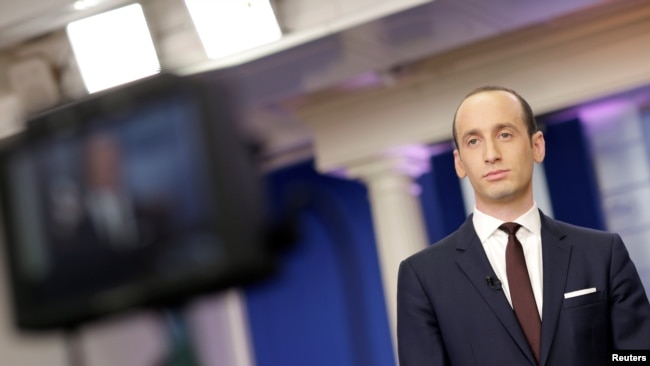Former President Donald Trump has been increasingly clear about his intention to use the power of the presidency to seek revenge on those he considers his political enemies if his bid to retake the White House is successful in the November elections.
Trump’s promises of retaliation are not new. Since entering the political arena in 2015, he has used the politics of grievance to motivate many of his supporters. While addressing a crowd last year at the annual Conservative Political Action Conference, Trump declared, “I am your warrior. I am your justice. And for those who have been wronged and betrayed, I am your retribution.”
However, in the days after he was found guilty of 34 felony counts in a New York state court last month, a case in which he has not yet been sentenced, Trump’s promises of revenge have not been made on behalf of his supporters, but as a reaction to his own personal legal difficulties.
Claims of persecution
The former president has claimed that multiple criminal indictments against him in various jurisdictions across the country are the product of a wide-ranging conspiracy to prevent him from winning the presidency again.
He places the responsibility for those prosecutions on President Joe Biden or sometimes on a shadowy cabal of people he insists are influencing Biden behind the scenes. That, he has claimed, would justify his own use of federal power to persecute them if he is given the chance.

In an interview last week with Fox News host Sean Hannity, the former president said, “Look, when this election is over, based on what they’ve done, I would have every right to go after them, and it would be easy because it’s Joe Biden.”
Late last week, when Trump was interviewed on camera by psychologist Phil McGraw, the subject came up again. McGraw, a well-known television host commonly known as Dr. Phil, tried to convince Trump that seeking revenge as president would get in the way of his other political priorities.
“Well, revenge does take time. I will say that,” Trump replied. “And sometimes revenge can be justified, Phil, I have to be honest. You know, sometimes it can.”
Allies echo Trump’s call
Trump has signaled that one of his priorities if reelected will be filling his administration with loyal allies willing to do his bidding. He was frequently frustrated during his four years in the White House by appointees who balked at his demands that they violate long-standing norms, and sometimes the law itself.
Already, some Trump allies who are likely to be considered for White House jobs in a second Trump administration are echoing him. They have called on Republican officeholders to use the levers of power available to them to target the former president’s political foes.
In a recent appearance on Fox News, Stephen Miller, a former White House adviser to Trump who would likely play a role in a second Trump administration, said, “Every facet of Republican Party politics and power has to be used right now to go toe to toe with Marxism and beat these communists.”

“Is every Republican [attorney general] opening investigations into voter fraud, right now?” he continued. “Is every House committee controlled by Republicans using its subpoena power in every way it needs to, right now? Is every Republican [district attorney] starting every investigation it needs to, right now?”
Former Trump White House counselor Steve Bannon has likewise called for Republicans to begin targeting Democrats, promising that such a campaign would only be accelerated if Trump is sworn in as president in January 2025.
“Judgment Day is 5 November of this year,” Bannon said, referring to Election Day in a recent episode of his daily podcast. “Accountability day starts on the afternoon of the 20th of January after Donald John Trump takes his hand off the King James Bible and we go to work.”
Democrats’ response
Biden has frequently criticized Trump’s promises of retribution but has said relatively little about the fallout from the former president’s recent conviction in New York.
However, in a recent interview with ABC News, the president criticized his predecessor for continually attacking the justice system as corrupt and called on him to accept the verdict against him.
“[S]top undermining the rule of law. Stop undermining the institutions,” Biden said. “That’s what Trump’s whole effort is. He’s trying to undermine it. Look, he got a fair trial. The jury spoke like they speak in all cases, and it should be respected.”
In remarks delivered in Michigan over the weekend, Vice President Kamala Harris went further, saying of Trump, “He spreads lies that our administration is controlling this case, when everyone knows it was a state prosecution. And he says that he will use a second term for revenge.

“Simply put, Donald Trump thinks he is above the law,” Harris said. “This should be disqualifying for anyone who wants to be president of the United States.”
Unprecedented for a president
Political scientist James A. Morone, a professor at Brown University, told VOA that Trump’s explicit pledge to use the power of the federal government to persecute his political enemies has no clear parallel in the country’s history.
“This is really unprecedented for a president to be doing this,” Morone said. “And really, the historical precedents are quite the contrary.”
Even after the Civil War, Morone said, there were no prosecutions of prominent former Confederate officials and military officers. Former Confederate President Jefferson Davis was arrested and charged with treason, but he was never prosecuted, and the charges against him were eventually dropped, allowing him to return to private life as a U.S. citizen.
Morone said that Trump’s rhetoric is particularly worrisome because it sends a message to current and future public officials who may feel they need to demonstrate their loyalty to him.
“Every time he gives a speech or an interview that says, ‘Revenge is coming. Revenge can be good,’ they’ll be sitting around thinking, ‘OK … let’s think of what we can do to put ourselves in good standing as Trump warriors,’ ” Morone said.




